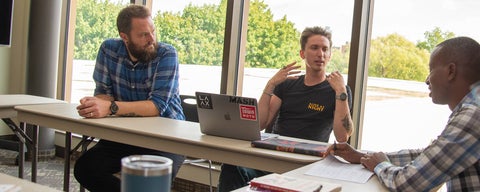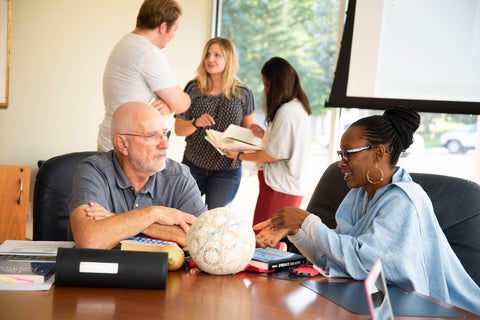
Overview
Turbulent times like ours call for people who understand systems of violence and conflict, and who are prepared to build peace with justice.
The Master of Peace and Conflict Studies (MPACS) program is a coursework-based, professional degree that empowers students with knowledge and skills to contribute to nonviolent peacebuilding. Combining rigourous interdisciplinary scholarship with experiential learning opportunities, the program provides graduates with tools to understand sources of conflict, polarization, and systems of violence, as well as to imagine and initiate transformative peacebuilding. Our distinctive focus is on civil society and community-led change.
The program is designed to be completed in 16 months by full-time students (a part-time option is available). Students take a combination of core PACS courses and electives of their choice, offered with the cooperation of other programs and departments at the University of Waterloo. Optional experiential learning opportunities include an internship placement and conflict skills workshops.
Degree Requirements
The MPACS program consists of 5 core courses and 5 electives (at least two of which must be PACS courses). Students typically begin the program in the fall term (September-December), taking 3 courses each term for the first and second terms, and 2 courses each term for the third and fourth terms.
For electives, students choose from PACS electives, cross-listed electives, or other relevant graduate courses provided they have obtained department approval.
Additionally, students must complete two academic milestones, an academic intergrity module and a research colloquium. The research colloquium involves completing a public presentation on research completed for the degree, followed by peer review and question and answers with the audience.

See Course Offerings for course descriptions and past years' syllabi. Technical degree requirements can be reviewed on University of Waterloo's academic calendar.